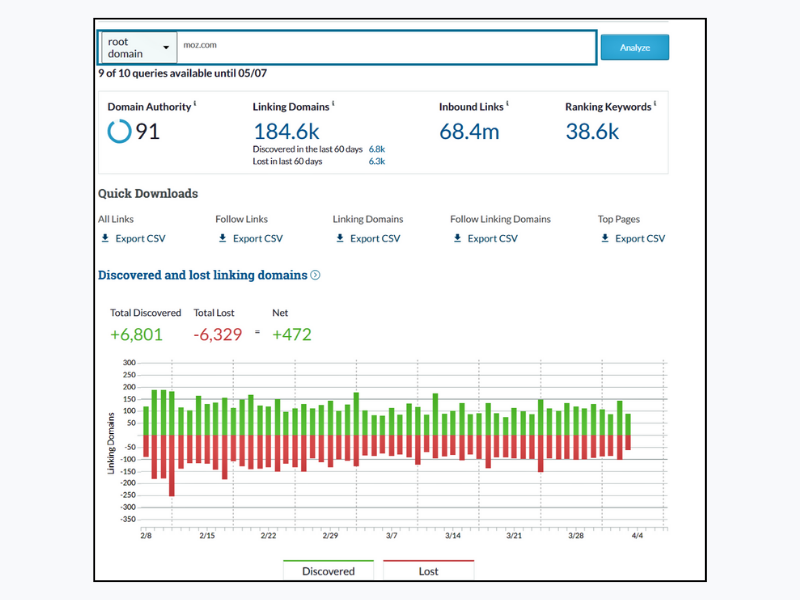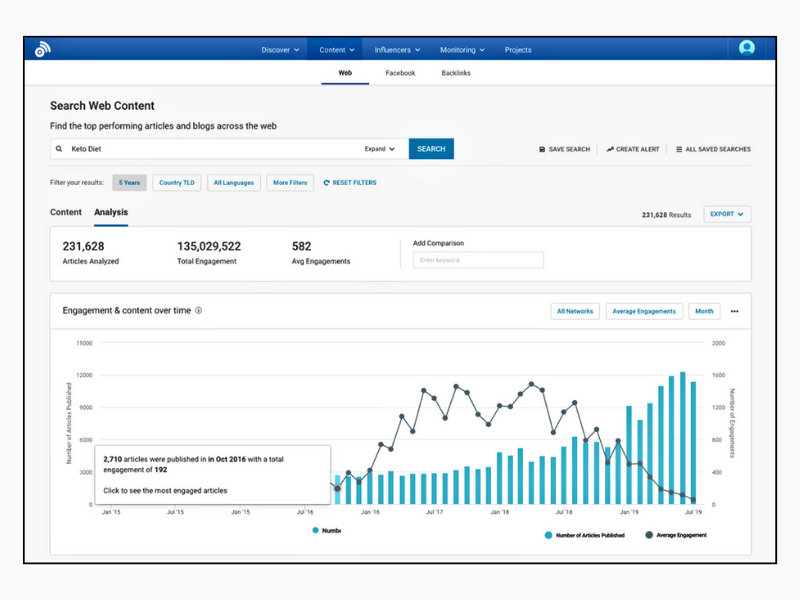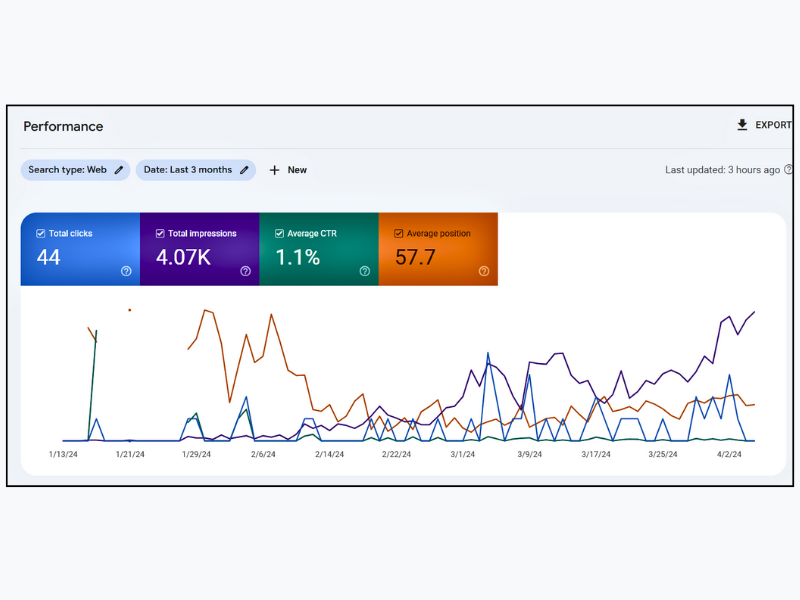Are you ready to take your website’s SEO to the next level and boost your search engine rankings? Wondering how off-page SEO techniques can help improve your online visibility? Look no further! In this comprehensive guide to Techniques of Off Page SEO, we’ll explore a range of strategies aimed at enhancing your website’s authority and reputation across the web. From building high-quality backlinks to leveraging social media and online communities.
Off-page SEO involves actions taken beyond your website to impact its visibility and reputation. These actions signal to search engines how others perceive your website, products, or services, contributing significantly to your overall SEO strategy. By focusing on off-page SEO, you demonstrate your site’s experience, expertise, authoritativeness, and trustworthiness (E-E-A-T). These are the critical factors for ranking higher on Google and other search engines.
We’ll delve into proven methods to increase your site’s credibility and trustworthiness for search engines. By the end of this blog post, you’ll gain valuable insights and actionable tips to elevate your off-page SEO efforts and propel your website to greater success in the digital landscape.

Table of Content
What is Off-Page SEO?
Off-page SEO encompasses all activities conducted outside of your website to enhance its ranking on search engines. While on-page SEO deals with optimizing internal elements such as content quality and user experience, off-page SEO is about elevating your site’s authority through external factors.
These strategies aim to improve your site’s authority, relevance, and trustworthiness in the eyes of search engines by building external signals such as backlinks, social media mentions, and online reputation.
Importance and Benefits of Off-Page SEO Techniques
Off Page SEO is the one the most important types of SEO. Off-page SEO is crucial because it signals to search engines that your website is reputable, credible, and valuable to users. By building a strong off-page SEO presence, you can improve your website’s visibility, attract more organic traffic, and ultimately achieve higher rankings in search engine results pages (SERPs).
Off-page SEO techniques helps to increase your website’s visibility and domain authority across the web. By focusing on activities outside your website, you can achieve numerous benefits that contribute to your overall SEO strategy and online success.
1. It helps in Increasing Website Authority
Off-page SEO helps establish your website as a credible and authoritative source within your industry. By earning backlinks from reputable websites and engaging with influencers, you can boost your website’s authority, which can positively impact your search engine rankings.
2. Improved Search Engine Rankings
Quality backlinks from relevant and authoritative websites are a key factor in search engine algorithms. By implementing this SEO techniques such as link building and social media engagement, you can enhance your website’s visibility and climb higher in search engine results pages (SERPs).
3. It help in Improving Online Reputation
Managing your online reputation is essential for building trust and credibility with your audience. Off-page SEO activities like responding to customer reviews, participating in online discussions, and monitoring brand mentions help cultivate a positive brand image and strengthen your online reputation.
4. Expanded Reach and Audience Engagement
Off-page SEO strategies allow you to reach new audiences and increase brand awareness beyond your website. Engaging with influencers, participating in social media conversations, and contributing valuable content to other platforms help broaden your reach and foster meaningful connections with potential customers.
5. Sustainable Long-Term Growth
Investing in off-page SEO techniques contributes to sustainable long-term growth for your website and brand. By building a strong network of backlinks, establishing a positive online reputation, and expanding your reach across various channels, you create a solid foundation for ongoing success in the ever-evolving landscape of SEO.
List of Top Off-Page SEO Techniques for Domain Authority Improvement
Improving your off-page SEO efforts directly impacts your Domain Authority (DA), a crucial metric indicating your site’s credibility and potential to rank in search engine results. While Google doesn’t directly use DA for ranking, it’s a reliable indicator of your site’s off-site SEO performance. Let’s explore eight effective off-page SEO techniques to bolster your site’s authority and elevate its visibility in search engine results.
1. Backlink Building
Backlink building involves acquiring links from other websites back to your own. Focus on obtaining high-quality backlinks from authoritative and relevant sources within your industry to improve your website’s authority and credibility in the eyes of search engines.
- How to do it: Reach out to relevant websites in your industry and request backlinks, create high-quality content that naturally earns backlinks, participate in guest blogging opportunities, and leverage broken link building tactics.
- Type: Link Building
- Best Practice: Focus on obtaining backlinks from authoritative and relevant websites, diversify your backlink profile, and prioritize quality over quantity.
- Tools to Use: Ahrefs, SEMrush, Moz, Majestic
2. Social Media Engagement
Engage actively on social media platforms to increase brand visibility, build relationships with your audience, and encourage social sharing of your content. Participate in conversations, share valuable content, and interact with your followers to boost your website’s social signals.
- How to do it: Regularly share valuable content, engage with your audience through comments and messages, participate in relevant conversations, collaborate with influencers, and utilize social media advertising.
- Type: Social Media Marketing
- Best Practice: Be consistent with your posting schedule, use multimedia content to increase engagement, encourage user-generated content, and analyze social media metrics to optimize your strategy.
- Tools to Use: Hootsuite, Buffer, Sprout Social, SocialBee
3. Guest Blogging
Guest blogging involves writing and publishing content on other websites within your industry or niche. By contributing valuable content to authoritative sites, you can increase your brand exposure, attract new audiences, and earn high-quality backlinks to your website.
- How to do it: Identify reputable websites in your niche that accept guest posts, pitch relevant topics to their editors, create high-quality content tailored to their audience, and include a link back to your website within the author bio or content.
- Type: Content Marketing
- Best Practice: Research target websites to ensure they have a strong domain authority, follow their guest posting guidelines closely, and focus on providing value to their audience.
- Tools to Use: BuzzSumo, Pitchbox, NinjaOutreach, HARO (Help a Reporter Out)
4. Influencer Marketing
Collaborate with influencers or industry experts to promote your brand, products, or services to their followers. Partnering with influencers can help amplify your message, increase brand awareness, and generate valuable backlinks and social signals for your website.
- How to do it: Identify influencers or industry experts in your niche, reach out to them with collaboration proposals, provide them with incentives such as free products or exclusive content, and leverage their platforms to promote your brand.
- Type: Influencer Marketing
- Best Practice: Choose influencers whose audience aligns with your target demographic, establish clear goals and expectations for the collaboration, and measure the effectiveness of the campaign through metrics such as reach, engagement, and conversions.
- Tools to Use: Influencer Marketing Platforms (e.g., InfluencerDB, Upfluence, AspireIQ), Social Media Analytics Tools
5. Online Reputation Management
Monitor and manage your online reputation to ensure that your brand’s image remains positive and trustworthy. Respond promptly to customer reviews and feedback, address any negative sentiment, and actively seek out opportunities to showcase your expertise and credibility.
- How to do it: Monitor online mentions of your brand, respond promptly and professionally to customer reviews and feedback, address any negative sentiment or complaints, and actively engage with your audience to build trust and credibility.
- Type: Reputation Management
- Best Practice: Encourage satisfied customers to leave positive reviews, address negative feedback with empathy and transparency, and regularly audit your online presence to ensure accuracy and consistency.
- Tools to Use: Google Alerts, Brand24, Mention, Reputology
6. Social Bookmarking:
Submit your website or content to popular social bookmarking sites to increase visibility and drive traffic. By sharing your content on platforms like Reddit, Digg, and StumbleUpon, you can attract new audiences, generate social signals, and improve your website’s authority.
- How to do it: Submit your website or content to popular social bookmarking sites such as Reddit, StumbleUpon, and Digg, create engaging titles and descriptions, and participate in relevant communities to increase visibility and drive traffic.
- Type: Content Sharing
- Best Practice: Focus on providing value to the community rather than self-promotion, follow each platform’s guidelines and etiquette, and avoid spammy or overly promotional behavior.
- Tools to Use: Reddit, StumbleUpon, Digg, Mix
7. Forum Participation
Engage in relevant online forums and communities to participate in discussions, answer questions, and share valuable insights. By establishing yourself as an authority within your niche, you can build relationships, earn backlinks, and drive targeted traffic to your website.
- How to do it: Identify relevant online forums and communities in your niche, participate in discussions, answer questions, provide helpful insights, and include links to your website when relevant.
- Type: Community Engagement
- Best Practice: Be genuine and helpful in your interactions, establish yourself as a knowledgeable and trusted member of the community, and avoid overly promotional or spammy behavior.
- Tools to Use: Quora, Reddit, Stack Overflow, Warrior Forum
8. Local SEO Citations
Ensure that your business information is accurately listed in online directories, local listings, and review sites. Consistent NAP (Name, Address, Phone Number) information across these platforms can boost your local SEO efforts and improve your website’s visibility in local search results.
- How to do it: Ensure that your business information (Name, Address, Phone Number) is accurately listed in online directories, local listings, review sites, and mapping services such as Google My Business.
- Type: Local SEO
- Best Practice: Keep your business information consistent across all platforms, encourage satisfied customers to leave positive reviews, and regularly update and maintain your listings.
- Tools to Use: Google My Business, Yelp, Bing Places, Moz Local
5 Off-Page SEO Tools you must Know
Off-page SEO tools are invaluable assets for streamlining your SEO efforts and maximizing your website’s visibility and authority across the web. From link analysis to social media monitoring, these tools provide valuable insights and functionalities to help you effectively execute your off-page SEO strategies.
1. Ahrefs
A comprehensive SEO tool that offers a wide range of features for off-page SEO, including backlink analysis, competitor research, and content exploration. Ahrefs’ robust data and intuitive interface make it a must-have tool for tracking and improving your website’s off-page SEO performance.

2, Moz Link Explorer
Moz Link Explorer provides valuable insights into your website’s backlink profile, allowing you to identify and analyze the quality of your backlinks. With features such as Domain Authority (DA) and Spam Score, Moz Link Explorer helps you make informed decisions about your off-page SEO strategy and prioritize link-building efforts.

3. BuzzSumo
BuzzSumo is a powerful content marketing tool that helps you identify popular content and influencers in your niche. By analyzing social shares and engagement metrics, BuzzSumo allows you to discover trending topics, identify potential link-building opportunities, and amplify your content’s reach across social media platforms.

4. SEMrush
SEMrush offers a suite of tools for off-page SEO, including backlink analysis, social media monitoring, and brand reputation management. With SEMrush, you can track your website’s backlink profile, monitor brand mentions, and identify opportunities to improve your off-page SEO performance.

5. Google Search Console
Google Search Console provides valuable insights into your website’s performance in Google search results. With features such as Search Analytics and Links to Your Site, Google Search Console allows you to monitor your website’s visibility, track backlinks, and identify areas for improvement in your off-page SEO strategy.

Measuring Off-Page SEO Success
Track key metrics such as backlink quantity and quality, social media engagement, brand mentions, and online reputation sentiment to measure the effectiveness of your off-page SEO efforts. Use tools like Google Analytics, SEMrush, and Moz to monitor your website’s performance and identify areas for improvement.
Related Read: The most Popular types of backlinks in SEO
Conclusion
In conclusion, Off-Page SEO Techniques play a critical role in enhancing your website’s authority and credibility in the eyes of search engines. By implementing strategies such as building high-quality backlinks, engaging with online communities, and leveraging social media platforms, you can significantly improve your website’s visibility and search engine rankings. Remember to focus on creating valuable, shareable content that naturally attracts links and encourages user engagement. Additionally, regularly monitor your backlink profile and make adjustments to your off-page SEO strategy as needed to stay ahead of the competition.
Now that you have a deeper understanding of off-page SEO techniques and their importance in improving your website’s search engine performance, it’s time to put your knowledge into action. Explore our blog for more in-depth articles on SEO strategies, digital marketing trends, and industry insights to help you elevate your online presence and achieve your business goals.
Read our blog One Marketing Mind for additional tips, tricks, and guides on all things related to SEO and digital marketing, and stay updated on the latest trends and best practices in the ever-evolving landscape of online marketing.
Frequently Asked Questions on Off-Page Techniques
What are Off-Page SEO Techniques?
Off-page SEO techniques are strategies used to improve a website’s visibility and authority outside of its own domain. These techniques focus on activities such as building backlinks, social media engagement, and influencer marketing to enhance a website’s reputation and ranking in search engine results pages (SERPs).
Why are Backlinks Important for Off-Page SEO?
Backlinks are crucial for off-page SEO because they serve as votes of confidence from other websites. Search engines view backlinks as endorsements of a website’s credibility and relevance, leading to higher rankings in SERPs. Quality backlinks from authoritative sites are particularly valuable for boosting a website’s authority and traffic.
How Can Social Media Engagement Impact Off-Page SEO?
Social media engagement plays a significant role in off-page SEO by increasing brand visibility, driving traffic, and generating social signals that indicate a website’s popularity and relevance. Active participation on social platforms, sharing valuable content, and fostering meaningful interactions with followers can contribute to improved off-page SEO performance.

